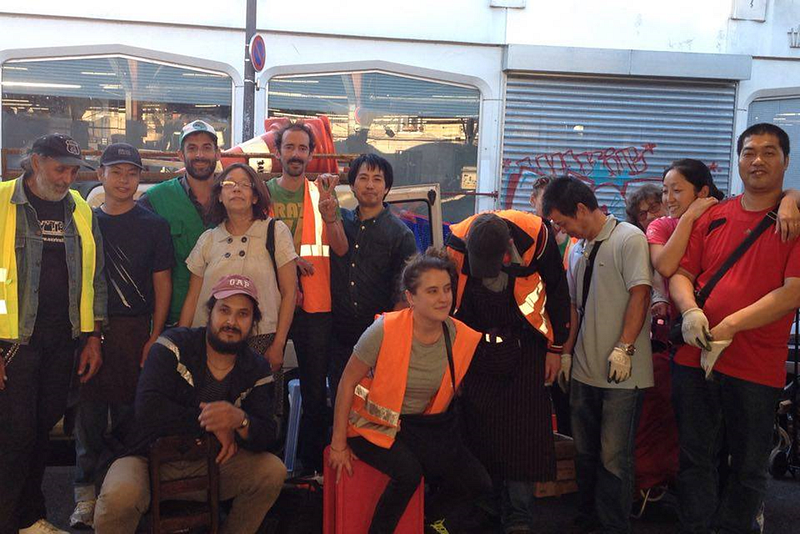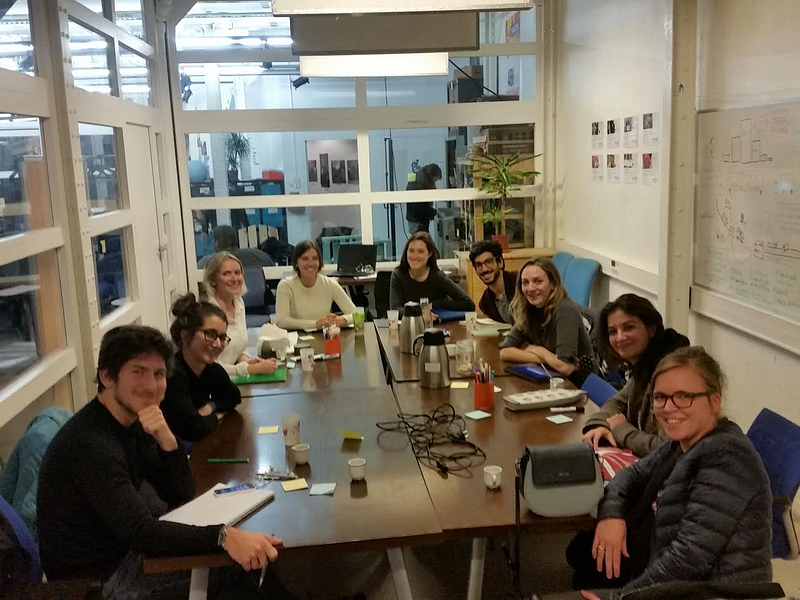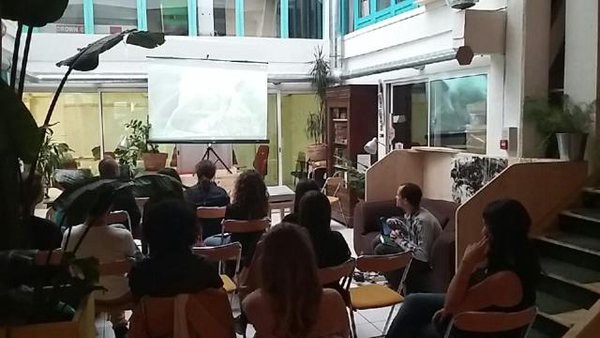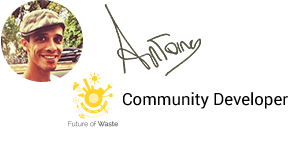Working with grassroots activists on the field
We had the opportunity to get in touch soon with Amelior, a waste picker organisation. It gave us the opportunity to go on the field and meet the people we were trying to help. We invited them to express themselves and show their work during events. At some point it proved interesting that they could express their challenges even if it’s also valuable to get an overview from NGOs. Radhia, our top volunteer for this campaign has been really inspired by those encounters and has decided to keep on meeting those people during a SenseTour to make movies about the way they organize themselves and how they could inspire each other.

Working with advocate and scientists
We knew almost nothing about Wastepickers and it would have been very difficult to gather all that knowledge in such little time. Luckily we found some impressive literature on the subject on the WIEGO, GTZ and global recwebsites, with many videos, reports. We’ve benefited from the inspiring talks given by Mudano and above all, we’ve been invited to join a collective of action-research and got in touch with a super already existing community “Rues marchandes” dedicated to help Wastepickers, we read their reports, attended each other’s meeting and events, created and shared contents together since we shared the same vision : lean collaboration and creativity to trigger grassroot mobilization to demand fundamental right and access to commons and public spaces. They brought us courage, scientific rigor and legitimacy for our field study.
Publish more contents
We shared some of the many learnings we had on articles, but loads of the knowledge that has been gathered on our Facebook Group, fanpage or through workshops hasn’t been capitalized yet. We had for instance a super workshop to draw an exhaustive panorama of the existing solutions and problems of second hand logistics that could be very helpful for all the social entrepreneurs that still suffer because of high transportation costs, or for our wannabe entrepreneurs that could better understand how they could design an impacting and helpful business during Sensefictions.

Make it easy to organize
We’ve recently made it more easy to organize challenge solving workshop through better trainings and created for next mobilizations, a real toolbox and mobilization scheme so that each one can benefit from a real community support. So that it could be easier, we launched a new event type : organize short movie screening followed by debates. It proved efficient to raise awareness rapidly thanks to a shared playlist in which people can pick films up, depending on the local stakes. Another way to make it easier is to incentive people to participate to partner events like OSCEDays where a support is provided.

Make it easy to understand
Waste and outcasts are not “sexy” for broad audience. The first step is to be able to explicit which main pain point you are trying to address and the impact it can have. For instance, the waste collector campaign aimed at
- Avoiding waste to be trashed out in nature with NGOs
- Incentive good waste segregation with professionals
- Promoting the role of Wastepickers with activists
It is possible that each goal will make you work on specific challenges with specific audience, and curate contents to make it available through appropriate media. For the Wastepickers aspects we noticed that many reports already existed in France, but they were mostly directed to specialists (long reports) or activists, and were mostly talking about the social benefits of wastepicking. We decided to try a new approach and estimate the ecological impact and convey the message through an infographic that could be easily shared on social media

Check out the article and the infographic here
Share the agenda
It is important that volunteers understand at what moment they can make and that potential partners or participant can easily “save the date”. We will try to get inspiration from the success of Waynak to inspire the next global campaign. there is a lot of event we already programme each year like the OSCE days, the European Week on waste reduction, the Sensefiction days etc.
Empower people locally
Most of the event of the campaign has been organized in Paris or from Paris which is contrary to our goal of growing abroad and giving more autonomy and local impact for the volunteers. We think the new design of the volunteer journey will help us attract more local Makesense wannabe connectors and give us more tools to cheer them up, understand their dreams and providing them support with documents, hotlines. Xavi Paez from Quito performed awesome event for ReciVeci and even published an article about it


 Enter your address to have adapted content
Enter your address to have adapted content

Find us